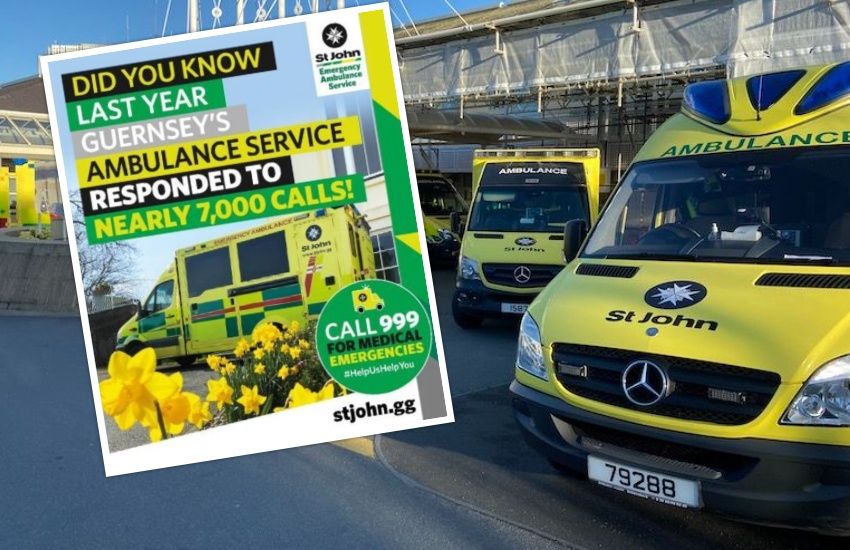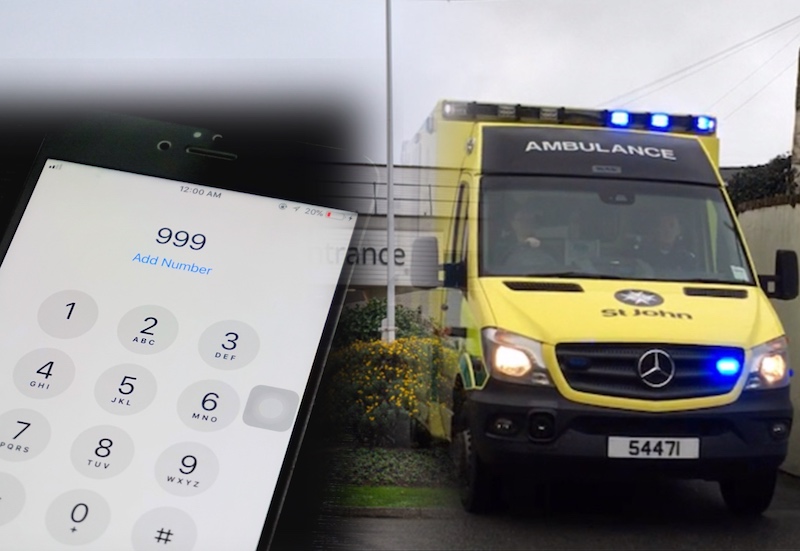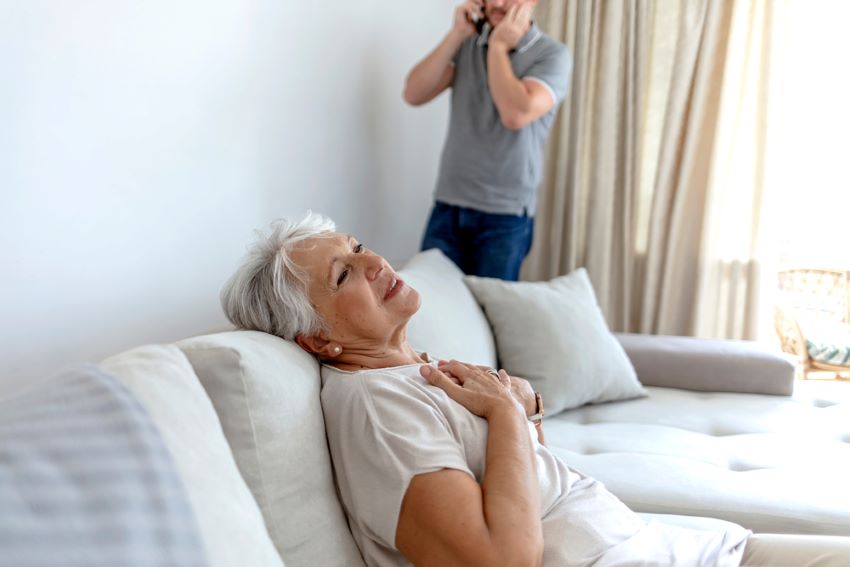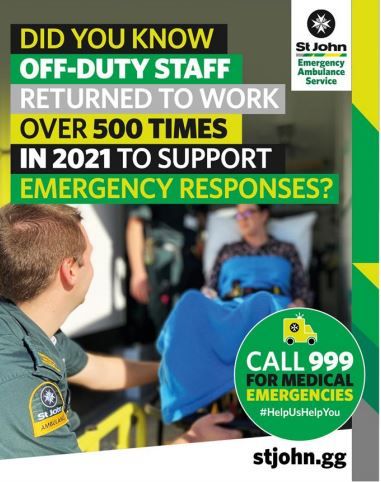


St John has launched a public awareness campaign to explain how it prioritises calls following a vast increase in demand in recent years.
The Emergency Ambulance Service experienced its busiest year on record in 2021, responding to nearly 7,000 calls, an increase of nearly 20% on the year before.
It was the first time in its 85-year history that calls exceeded 6,000 in a single year and there were half again as many calls as there were just six years earlier.
St John's Head of Operations, Dean de la Mare, said the Emergency Ambulance Service "has coped well with the increase in demand" and reassured islanders of its commitment to emergency care.
"We have consistently met our key performance indicators and continue to deliver the high standard of care islanders have come to expect," said Mr de la Mare.
“We want islanders to be reassured that if you need an ambulance, you will get one. And for life threatening illnesses or injuries, which are the most urgent and highest category of call, you will get an immediate response and the ambulance will come with lights and sirens.
“No-one should ever be put off phoning for an ambulance in an emergency because prompt pre-hospital medical intervention can save a life and reduce complications later on. If in doubt, you should call 999 and JESCC [the States' emergency control centre] will decide on the most appropriate response based on the information you provide."

Pictured: St John's latest public awareness campaign emphasises the importance of calling 999 as soon as a medical emergency arises.
The steadily increasing proportion of older islanders and covid-19 are among the contributing factors to the trend of higher demand, which St John does not expect to reverse any time soon, saying it is "preparing for the potential of another busy period".
As part of its public awareness campaign, Mr de la Mare explained how calls are prioritised and categorised depending on their urgency.
"For less urgent calls, the average response time will be longer and the ambulance will travel at normal road speed so may take longer to arrive," he said.
Category one calls are for people with life threatening injuries and illnesses which include cardiac arrests, unconscious patients and patients who are having an active convulsion. St John aims to reach these calls within eight minutes of being alerted.
Category two calls are for all other emergencies, including patients with breathing difficulties, chest pain, severe bleeding and strokes. St John aims to reach these calls within 14 minutes.
Category three is for urgent calls which include diabetes, faints and uninjured patients who have fallen. The target response time for category three calls is 30 minutes.
Category four is for less urgent calls, such as patients who have diarrhoea and vomiting or a urinary infection. Patients in this category can expect to be reached within two hours.

Pictured: St John is assuring islanders that record demand on services and the need to prioritise calls do not alter its commitment to respond speedily to urgent medical cases.
St John said: "The triage system for prioritising calls is an internationally recognised system which has now been in place for several years in Guernsey and works efficiently and safely.
"When you call 999, the operator at JESCC will ask a series of questions to determine the seriousness of the call. Life threatening calls will be identified immediately and the closest resource will be dispatched straight away.
"The Ambulance Service in Guernsey also operates a Community First Responders scheme and Co-responders scheme, so trained and equipped responders who are in the area may arrive in the minutes before the ambulance arrives to provide prompt life-saving treatment.
"For less urgent calls, JESCC will identify the most appropriate care and decide on the best response.
"If a patient’s condition worsens or deteriorates, you should immediately call back on 999 and explain the changes. The call-taker will then reassess and, if necessary, recategorize the case.
"In some situations, a clinician may also call back to get more information, and on some occasions you may be advised to visit a GP, pharmacist or other healthcare professional."
Express recently reported on St John's efforts to encourage feedback about its services.

Pictured: Staff at St John have faced increasing demand from emergency calls in recent years.
Mr de la Mare thanked Ambulance Service staff for the way they have responded to the considerable increase in demand in recent years.
"I would like to take this opportunity to thank our frontline crews for their hard work, especially during the periods of exceptionally high demand," he said.
"The contingency measures we have in place to deploy senior ambulance officers to frontline duties and call off-duty staff back to the ambulance station have worked well, but when we experience high demand, it may mean patients with less serious complaints could have to wait longer for the ambulance."
Comments
Comments on this story express the views of the commentator only, not Bailiwick Publishing. We are unable to guarantee the accuracy of any of those comments.